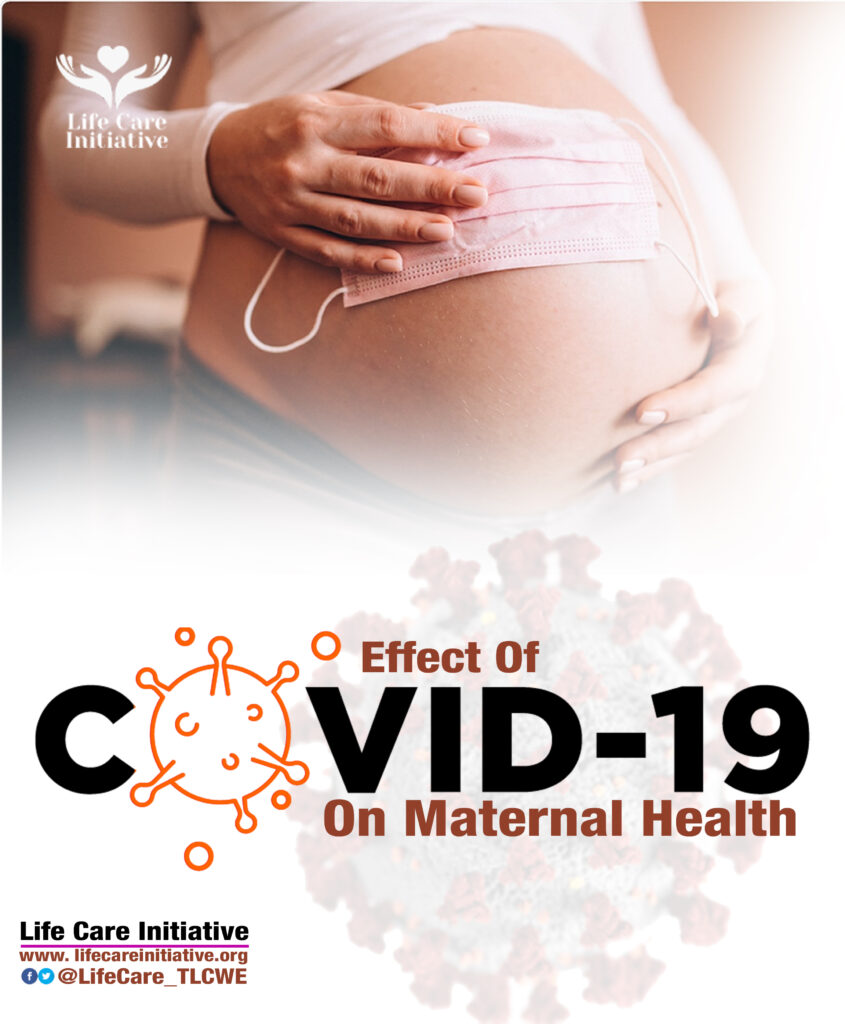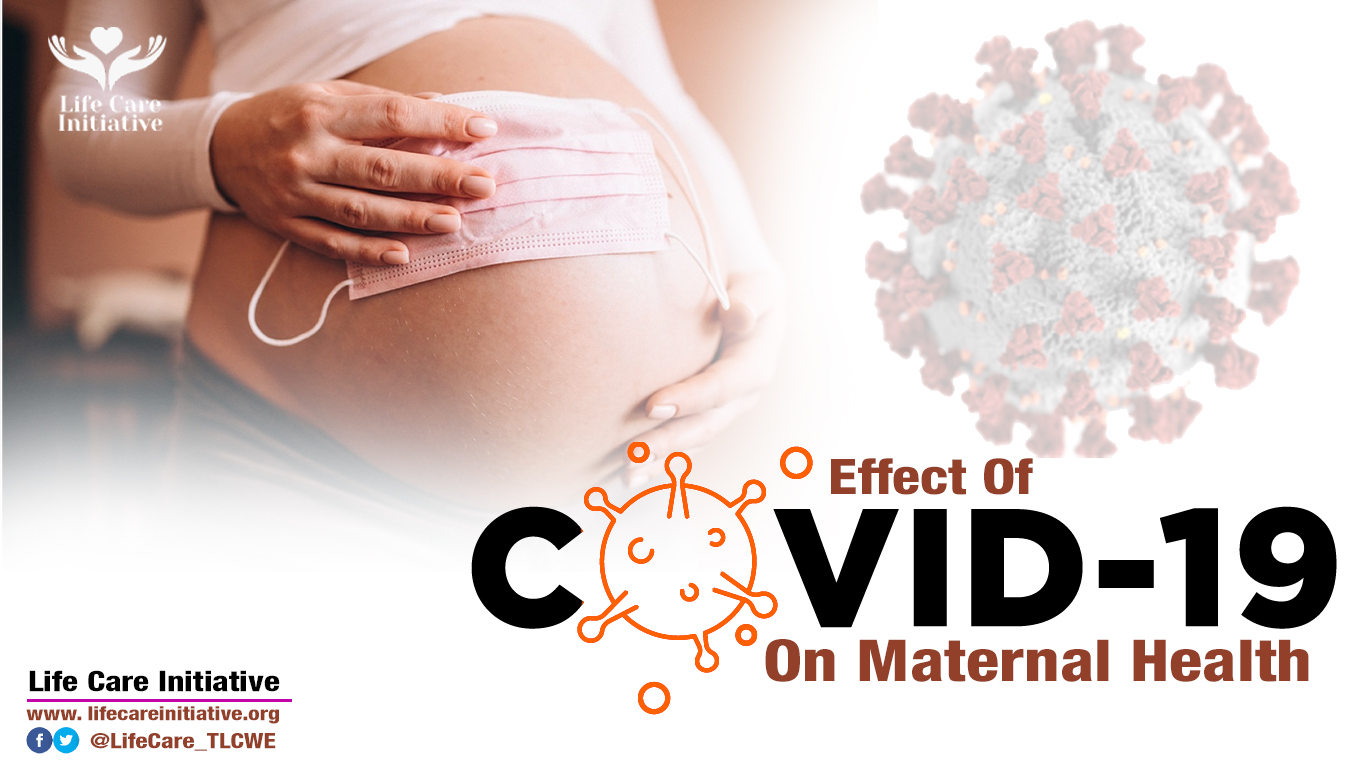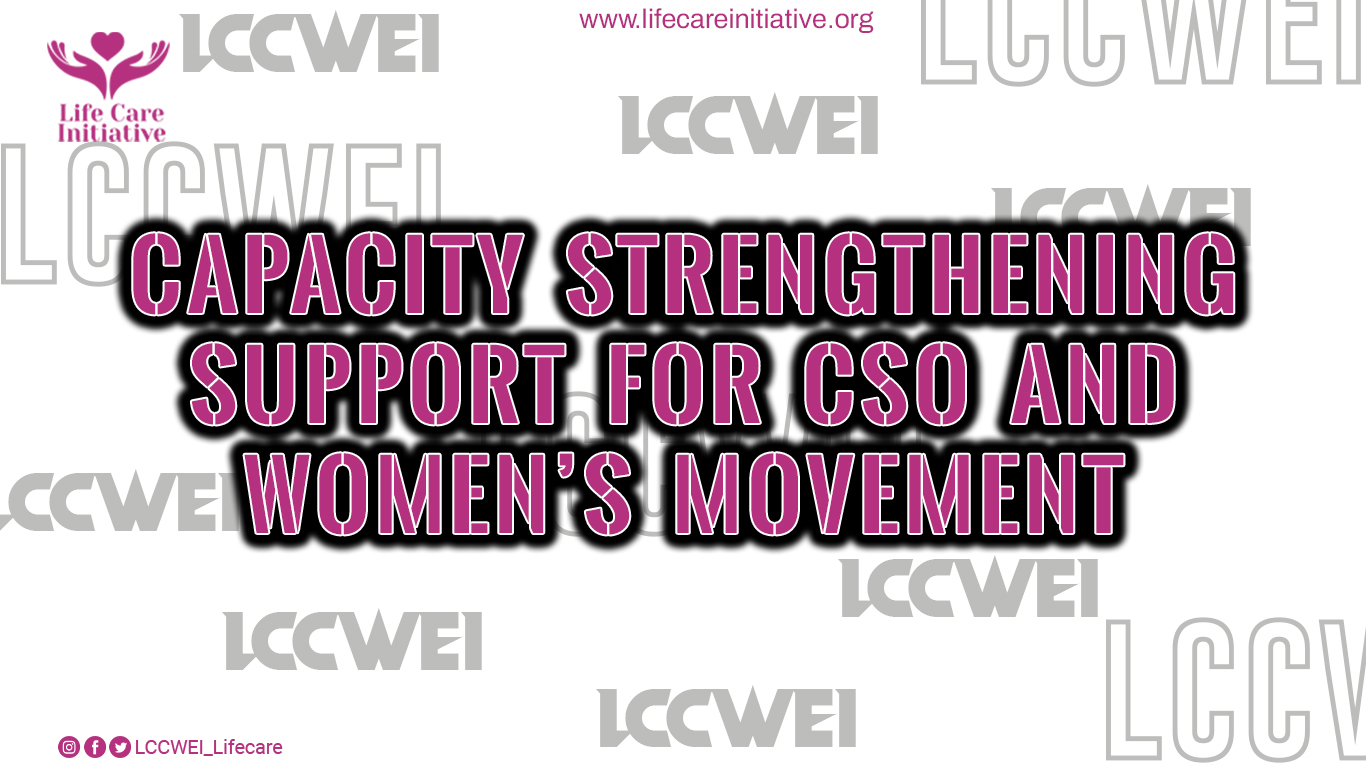The Covid-19 pandemic has affected maternal health both directly and indirectly. Given that the effects of the pandemic are still unfolding, the effects explained in this article are also currently unfolding. The main direct effect already being observed especially in developing countries is the disruption of essential services. The issue of social distancing became a nightmare in developing countries where there are shortages of healthcare providers and small hospital areas.
Most hospital equipment and staff members have been directed towards caring for Covid-19 patients. The hospital staff members left to care for patients in the maternity wards have greatly been reduced due to scarcity of resources. This puts into question the quality of care being offered to expectant women.

The pandemic has also inhibited how women access maternal healthcare facilities. Many parts of the world have been under strict lockdowns and curfews, which have restricted the movement of individuals. Such restrictions may affect how women access healthcare facilities. Furthermore, the increased risk of contracting Covid-19 in hospitals may deter some women from accessing antenatal and postnatal services increasing the risk of maternal complications during and after pregnancy.
The pandemic has also affected women psychologically. When the virus began spreading to most parts of the world, most people were unaware of its short and long-term effects. Pregnant women at the time were worst hit due to the fear of the unknown. Such constant worry would affect the mother’s psychological status in turn affecting the unborn child’s neurobehavioral development. The increased stress on the mother may affect their decision to seek maternal health services which may, in turn, affect their health and the health of their unborn child.
On the flip side, most pregnant women have reported an increase in efficiency in outpatient hospitals in form of reduced wait time and improved hygiene as a result of the pandemic, such practices should be continued even during the post-pandemic period to ensure maternal services are provided more efficiently.
It would be beneficial to have increase home-based care for expectant and lactating mothers to keep them safe from contacting the Covid-19 virus. More healthcare workers need to be deployed in rural areas to reduce the overcrowding of patients in public healthcare facilities. The expectant and lactating mothers and their young ones would be safer at home. The hospitals would also be less congested and safer for other patients.





